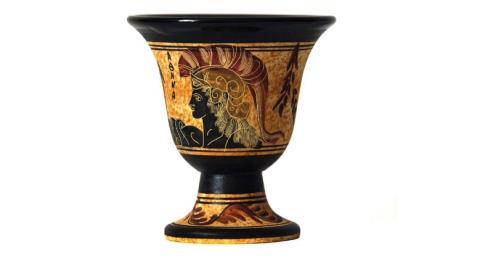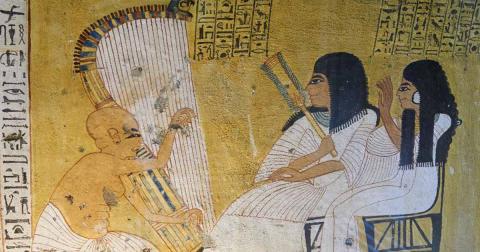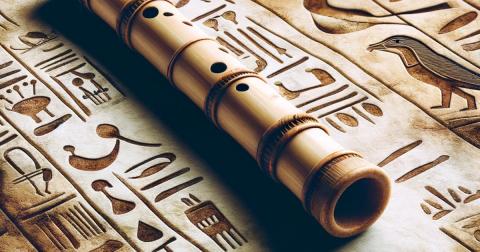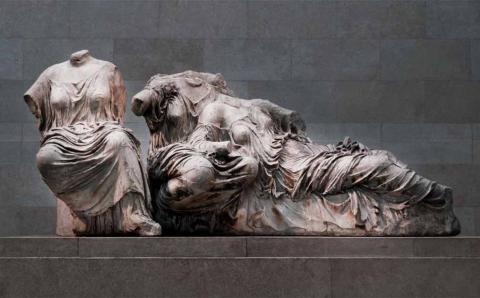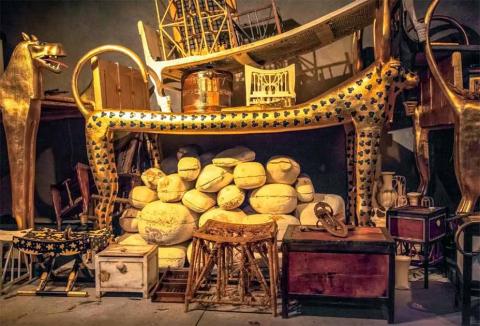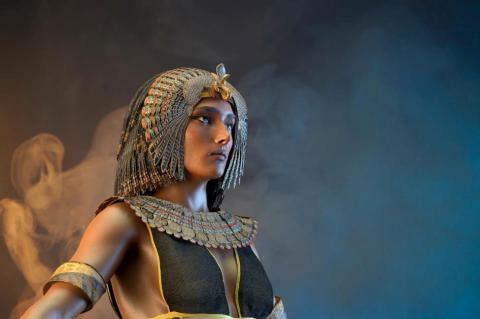When you delve into news related to historic reconstructions, one name consistently emerges: Cícero Moraes. His remarkable talent has brought faces from the distant past back to life, including Mary Magdalene, Saint Anthony of Padua, the Woman of Pumapungo, and even the Renaissance astronomer Nicolaus Copernicus.
Ancient History
Ancient History Period.
Pythagorean Cup: Turning Greedy Partygoers into Wet Blankets
Playing Magical Melodies by Nile: Ancient Egyptian Music
Music was an integral part of daily life in the Nile Valley from the earliest times. It was a rich and important aspect of ancient Egyptian culture, permeating religious ceremonies, popular festivals, and daily activities.
Ancient Flutes: Creating Sweet Music for 60,000 Years
The flute is one of the world's oldest musical instruments and has a rich and diverse history spanning several millennia.
- Read more about Ancient Flutes: Creating Sweet Music for 60,000 Years
- Log in or register to post comments
The Glamour of Ancient Roman Fashion
From lavish clothing adorned with intricate details to elaborate hairstyles and cosmetic rituals, the high fashion of ancient Rome was an exquisite tapestry that reflected the societal norms and values of its time.
- Read more about The Glamour of Ancient Roman Fashion
- Log in or register to post comments
7 Facts about the Parthenon Marbles
In recent years, there have been calls for the British Museum to return the Parthenon Marbles in its collection to Greece for display in a new museum on the Acropolis. The museum would be designed to showcase the Marbles in their original context, alongside other ancient artifacts. But what exactly are the Marbles and why are they important?
Here are seven facts, a video describing the art, and a collection of images of these controversy-sparking artifacts.
- Read more about 7 Facts about the Parthenon Marbles
- Log in or register to post comments
The Discovery and Treasures of King Tutankhamun’s Tomb
2022 marks the centennial of one of the greatest archaeological finds in modern history – the discovery of the tomb of Tutankhamun. It was discovered by chance in the world-famous Valley of the Kings on the west bank of the Nile opposite Luxor.
- Read more about The Discovery and Treasures of King Tutankhamun’s Tomb
- Log in or register to post comments
The Majesty of Ancient Egyptian Queens
Although many people today refer to the wives of ancient Egyptian kings and female Egyptian pharaohs as queens, in ancient Egypt all the people surrounding the king (pharaoh) were referred to by their relationship to him/her. This was not meant to diminish a woman’s role per se, it was simply because all royal titles emphasized the individual’s relationship to the powerful king.
- Read more about The Majesty of Ancient Egyptian Queens
- Log in or register to post comments
The Mysterious Ancient Egyptian Labyrinth
“This I have actually seen, a work beyond words. For if anyone put together the buildings of the Greeks and display of their labours, they would seem lesser in both effort and expense to this labyrinth… Even the pyramids are beyond words, and each was equal to many and mighty works of the Greeks. Yet the labyrinth surpasses even the pyramids.”
- Read more about The Mysterious Ancient Egyptian Labyrinth
- Log in or register to post comments
Think Egypt Think Magic: The Power of Heka
The lives of ancient Egyptians were inextricably intertwined with magic. It was present in everything from religion to politics, and from birth to death. Magic was such a prevalent force that in the early third century AD, the Christian theologian and philosopher Titus Flavius Clemens, better known as Clement of Alexandria, declared that: “Egypt was the mother of magicians.”
- Read more about Think Egypt Think Magic: The Power of Heka
- Log in or register to post comments
Pagination
- Previous page
- Page 2
- Next page





